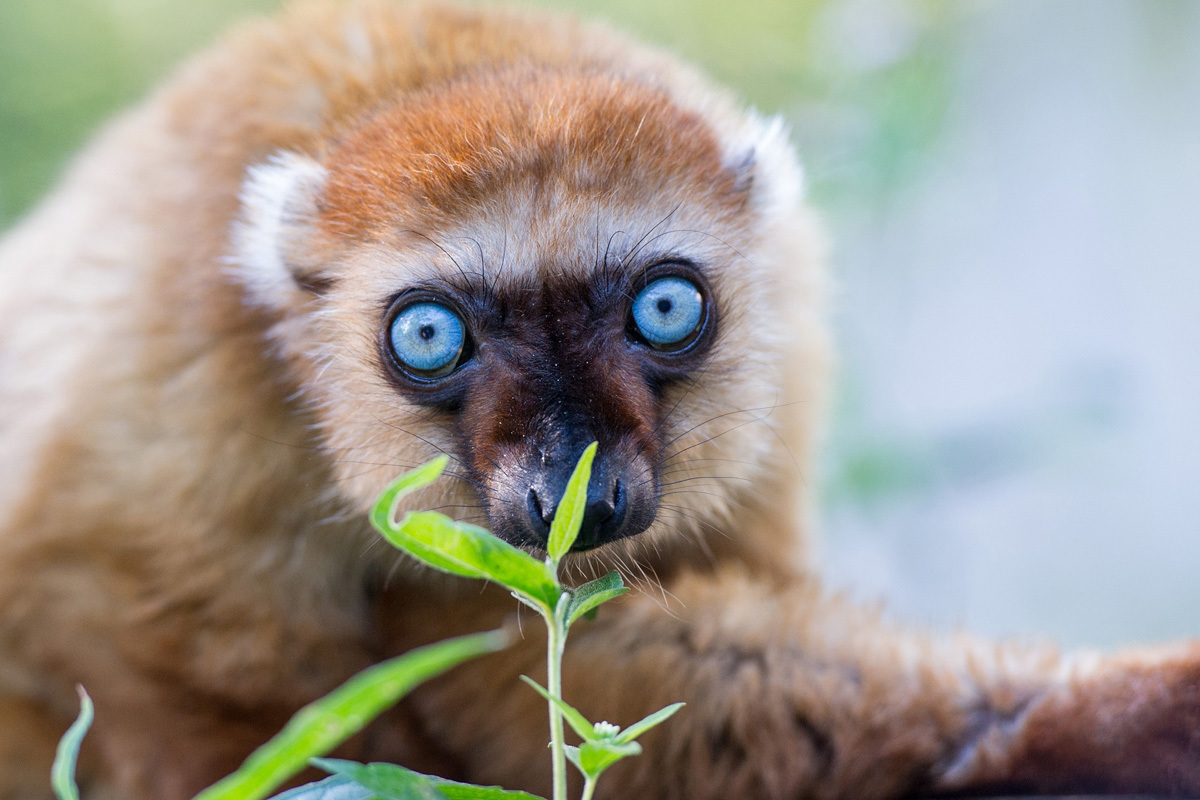
Blue-eyed black lemur project
Madagascar
Blue-eyed black lemurs in Madagascar (Africa) are threatened with extinction because the poor people in Madagascar cut down the forests where these lemurs live and they also hunt them. The APCT takes action to protect these precious animals.
About the project
Blue-eyed black lemurs in the wild live on the African island of Madagascar. This is the only place in the world where these animals inhabit the wild. Sadly the blue-eyed black lemurs are threatened with extinction. The population in Madagascar is not privileged. The people cut down the forests where blue-eyed black lemurs live, to grow rice for example. The blue-eyed black lemurs arew also being hunted on top of that.
If we do nothing, then, in just 10 years, there will be no more blue-eyed black lemurs in the wild. We cannot let that happen! Together with AEECL (an umbrella organisation of European zoos), we are committed to protecting the last blue-eyed black lemurs in Madagascar.

What do we do?
Together with the AEECL we protect the blue-eyed black lemurs on Madagascar. For example, we conduct research on these animals and work on education for the local population. We teach the people about nature conservation and the importance of it. We deploy rangers to protect the forests. And we organize ecotourism trips to Madagascar, which serve as an alternative income for the local population. And if tourists come to Madagascar specifically to view the blue-eyed black lemur, the chances of them being hunted are slimmer.
Research team in Madagascar
In 2017, a research team was sent by Apenheul to conduct research into the blue-eyed black lemurs in Madagascar. The questions they were tasked with answering were: how many blue-eyed black lemurs are left in the wild? How are they doing? And how can we best protect them? The research team recorded their experiences on film. They are still working on analysing all the findings and data. This will hopefully provide us with more information about how we can better protect the blue-eyed black lemurs.
" Biologist Iris de Winter conducted research into blue-eyed black lemurs in the wild. "
What else can you do?
We need your support to protect the blue-eyed black lemurs!
Make your donation with the number below in the name of the Apenheul Primate Conservation Trust. 100% of your donation will support our projects.
IBAN: NL06TRIO019798614
BIC: TRIONL2U
Want to know more?
Get in contact with:
Apenheul Primate Conservation trust
E-mail: info@apenheul.nl
Phone: 055-357 57 00 (general number, you will be reconnected)
Related pages
Welcome to Apenheul
Open every day
from 10.00 until 17.00